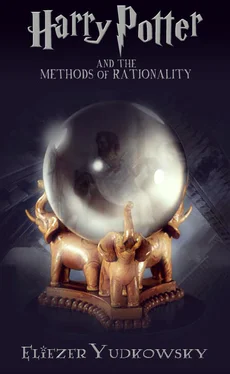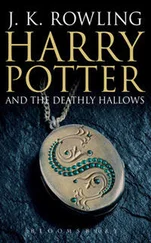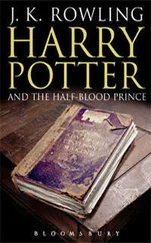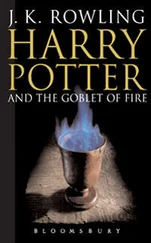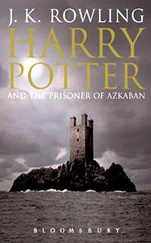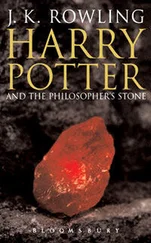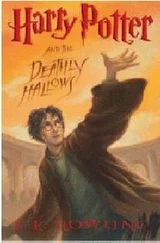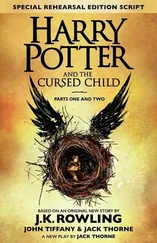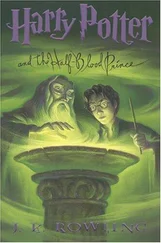Eliezer Yudkowsky - Harry Potter and the Methods of Rationality
Здесь есть возможность читать онлайн «Eliezer Yudkowsky - Harry Potter and the Methods of Rationality» весь текст электронной книги совершенно бесплатно (целиком полную версию без сокращений). В некоторых случаях можно слушать аудио, скачать через торрент в формате fb2 и присутствует краткое содержание. Жанр: Юмористическая фантастика, на английском языке. Описание произведения, (предисловие) а так же отзывы посетителей доступны на портале библиотеки ЛибКат.
- Название:Harry Potter and the Methods of Rationality
- Автор:
- Жанр:
- Год:неизвестен
- ISBN:нет данных
- Рейтинг книги:3 / 5. Голосов: 1
-
Избранное:Добавить в избранное
- Отзывы:
-
Ваша оценка:
- 60
- 1
- 2
- 3
- 4
- 5
Harry Potter and the Methods of Rationality: краткое содержание, описание и аннотация
Предлагаем к чтению аннотацию, описание, краткое содержание или предисловие (зависит от того, что написал сам автор книги «Harry Potter and the Methods of Rationality»). Если вы не нашли необходимую информацию о книге — напишите в комментариях, мы постараемся отыскать её.
Harry Potter and the Methods of Rationality — читать онлайн бесплатно полную книгу (весь текст) целиком
Ниже представлен текст книги, разбитый по страницам. Система сохранения места последней прочитанной страницы, позволяет с удобством читать онлайн бесплатно книгу «Harry Potter and the Methods of Rationality», без необходимости каждый раз заново искать на чём Вы остановились. Поставьте закладку, и сможете в любой момент перейти на страницу, на которой закончили чтение.
Интервал:
Закладка:
And she knew, then, as Harry and Dumbledore had both tried to warn her, that everything she'd ever thought about being a heroine had been mistaken. That there wasn't really any such thing as heroes, outside of stories. There was just horrible danger, and being arrested by Aurors and put in cells next to Dementors, pain and fear and -
"Miss Granger?" said the Defense Professor.
She said nothing. All the words were blocked in her throat.
"I need a decision, Miss Granger."
She kept her jaw locked, didn't let any words come out.
Finally the Defense Professor sighed. Slowly the white light failed, and slowly the door behind him swung open, so that he was once again a black silhouette against the opening. "Good night, Miss Granger," he said, and turned his back to her, and walked away into Hogwarts.
It took a while for her breathing to slow down again. Whatever had happened here tonight, it didn't feel anything like victory. She'd fought so hard just to stop herself from saying Yes in the face of the Defense Professor's pressure, and now she didn't even know if she'd done the right thing.
When she walked back into the light herself (after exhaustion had overtaken everything and sleep was once more a possibility), she thought she heard it as she was within the doorway, from behind her and above her, a distant cawing cry.
But it wasn't meant for her, she knew, so she started climbing up the stairs toward her dorm room.
The other girls were probably asleep by now, and wouldn't look at her, or look away -
She felt the tears start, and this time she didn't stop them.
Chapter 85: Taboo Tradeoffs, Aftermath 3, Distance
Slow and hard, the long stairway that led to the peak of Ravenclaw. From the inside, the stairway seemed like a straight upward slope, though from the outside you could see that it logically had to be a spiral. You could only get to the top of the Ravenclaw tower by making that long climb without shortcuts, stone step by stone step; passing beneath Harry's shoes, pushed down by his wearying legs.
Harry had seen Hermione safely off to bed.
He had lingered in the Ravenclaw common room long enough to collect a few signatures that might be useful to Hermione later. Not many students had signed; wizards hadn't been trained to think in the put-up-or-shut-up, stick-your-neck-out-and-make-a-prediction-or-stop-pretending-to-believe-in-your-theory rules of Muggle science. Most of them hadn't seen anything incongruent about being too nervous to sign an agreement saying that Hermione got to hold it over them for the rest of their lives if they were wrong, while acting outwardly confident that she was guilty. But just having demanded the signatures would make the point after the truth came out, if anyone ever again suspected Hermione of anything Dark. She wouldn't have to go through this twice, at least.
After that Harry had left the common room quickly, because all the kindly forgiving sentiments he'd reasoned out were getting harder and harder to remember. Sometimes Harry thought the deepest split in his personality wasn't anything to do with his dark side; rather it was the divide between the altruistic and forgiving Abstract Reasoning Harry, versus the frustrated and angry Harry In The Moment.
The circular platform at the top of the Ravenclaw tower wasn't the tallest place in Hogwarts, but the Ravenclaw tower jutted out from the main body of the castle, so you couldn't see down into the top platform from the Astronomy tower. A quiet place to think, if you had an awful lot to think about. A place where few other students ever came - there were easier niches of privacy, if privacy was all you wanted.
The night-lit torches of Hogwarts were far below. The platform itself offered few obstructions; the stairs emerged from an uncovered gap in the floor, rather than an upright door. From this place, then, the stars were as visible as they ever were on Earth.
The boy lay down in the center of the platform, heedless of his robes that might be dirtied, dropping his head to rest upon the rock-tiled floor; so that, except for a few half-seen crenellations of stone at vision's edge, and a sliver of crescent moon, reality became starlight.
The pinpoints of light in dark velvet twinkled, wavering and returning, a different kind of beauty from their steady brilliance in the Silent Night.
Harry gazed out abstractly, his mind on other things.
This day your war against Voldemort has begun...
Dumbledore had said that, after the Incident with Rescuing Bellatrix from Azkaban. That had been a false alarm, but the phrase expressed the sentiment well.
Two nights ago his war had begun, and Harry didn't know with who .
Dumbledore thought it was Lord Voldemort, returned from the dead, making his first move against the boy who had defeated him last time.
Professor Quirrell had put detection wards on Draco, fearing that Hogwarts's mad Headmaster would try to frame Harry for the death of Lucius's son.
Or Professor Quirrell had set up the entire thing, and that was how he'd known where to find Draco. Severus Snape thought the Hogwarts Defense Professor was an obvious suspect, even the obvious suspect.
And Severus Snape himself might or might not be even remotely trustworthy.
Someone had declared war against Harry, their first strike had been meant to take out Draco and Hermione both, and it was only by the barest of margins that Harry had saved Hermione.
You couldn't call it victory. Draco had been removed from Hogwarts, and if that wasn't death, it wasn't clear how it could be undone, or what shape Draco might be in when he got back. The country of magical Britain now thought Hermione an attempted-murderer, which might or might not make her decide to do the sane thing and leave. Harry had sacrificed his entire fortune to undo his loss, and that card could only be played once.
Some unknown power had struck at him, and if that blow had been partially deflected, it had still hit really hard.
At least his dark side hadn't asked anything of him in exchange for saving Hermione. Maybe because his dark side wasn't an imaginary voice like Hufflepuff; Harry might imagine his Hufflepuff part as wanting different things from himself, but his dark side wasn't like that. His "dark side", so far as Harry could tell, was a different way that Harry sometimes was . Right now, Harry wasn't angry; and trying to ask what "dark Harry" wanted was a phone ringing unanswered. The thought even seemed a little strange; could you owe something to a different way you sometimes were?
Harry stared up at the random stars, the scattered twinkling lights that human brains couldn't help but pattern-match into imaginary constellations.
And then there was that promise Harry had sworn.
Draco to help Harry reform Slytherin House. And Harry to take as an enemy whomever Harry believed, in his best judgment as a rationalist, to have killed Narcissa Malfoy. If Narcissa had never gotten her own hands dirty, if indeed she'd been burned alive, if the killer hadn't been tricked - those were all the conditions Harry could remember making. He probably should've written it down, or better yet, never made a promise requiring that many caveats in the first place.
There were plausible outs, for the sort of person who'd let themselves rationalize an out. Dumbledore hadn't actually confessed. He hadn't come right out and said he'd done it. There were plausible reasons for an actually-guilty Dumbledore to behave that way. But it was also what you'd expect to see, if someone else had burned Narcissa, and Dumbledore had taken credit.
Harry shook his head, flattening one side of his hair and then another against the stone-tiled floor. There was still a final out, Draco could still release him from the oath at any time. He could, at least, describe the situation to Draco, and talk about options with him, when they met again. It didn't seem like a very likely prospect for release - but the idea of talking something over honestly was enough to satisfy the part of himself that demanded adherence to oaths. Even if it only meant delaying, it was better than taking a good man as an enemy.
Читать дальшеИнтервал:
Закладка:
Похожие книги на «Harry Potter and the Methods of Rationality»
Представляем Вашему вниманию похожие книги на «Harry Potter and the Methods of Rationality» списком для выбора. Мы отобрали схожую по названию и смыслу литературу в надежде предоставить читателям больше вариантов отыскать новые, интересные, ещё непрочитанные произведения.
Обсуждение, отзывы о книге «Harry Potter and the Methods of Rationality» и просто собственные мнения читателей. Оставьте ваши комментарии, напишите, что Вы думаете о произведении, его смысле или главных героях. Укажите что конкретно понравилось, а что нет, и почему Вы так считаете.
